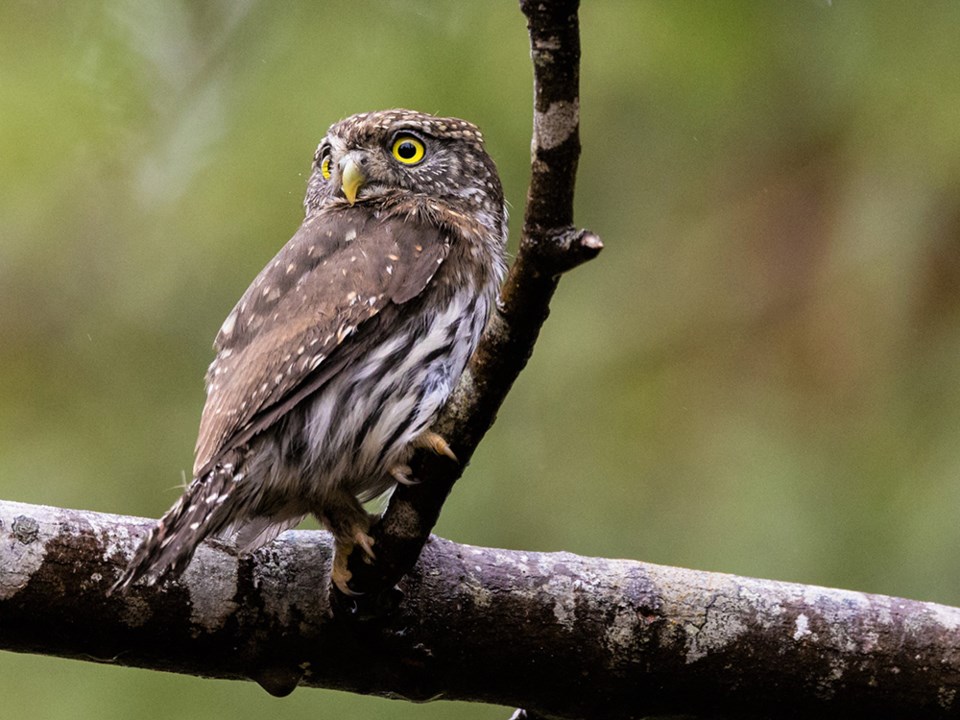Northern pygmy owls, the size of a large sparrow, are visiting Powell River Orphaned Wildlife Society in abundance these days, after hitting windows or moving vehicles and suffering obvious consequences (knocked out cold, probably concussed, sometimes with a separated shoulder), or being tumbled about or caught by cats.
These small raptors are ferocious hunters with a taste for songbirds. The injured owls receive essential first aid: pain medications, wrapping of a wing if required, a mouse each day and a quiet place in which to rest, before being placed on the next flight to Vancouver, free of charge on Pacific Coastal Airlines.
In Delta, volunteers meet the plane and take the patient to Orphaned Wildlife Rehabilitation Society (OWL), who are specialists in raptor care (eagles, falcons, hawks, owls). After recovery, which can take a few months, depending on the severity of the injuries, the tiny owl returns to the qathet region for release.
Northern pygmy owls are diurnal, hunting during the day, often sitting quietly until suddenly surprising their prey. They take prey up to three times their own size, such as northern flickers, and even chickens!
As a defensive measure, songbirds often gather to mob sitting pygmy owls to drive them off. These mobbing songbirds, the very birds the pygmy is keen to catch, can help us find these hard-to-see owls, as can listening for their call, a high-pitched series of toots.
They also have a pair of spots on the back of the neck that look like eyes. Possibly these spots help fool the mobbers into thinking the owl is watching them.



